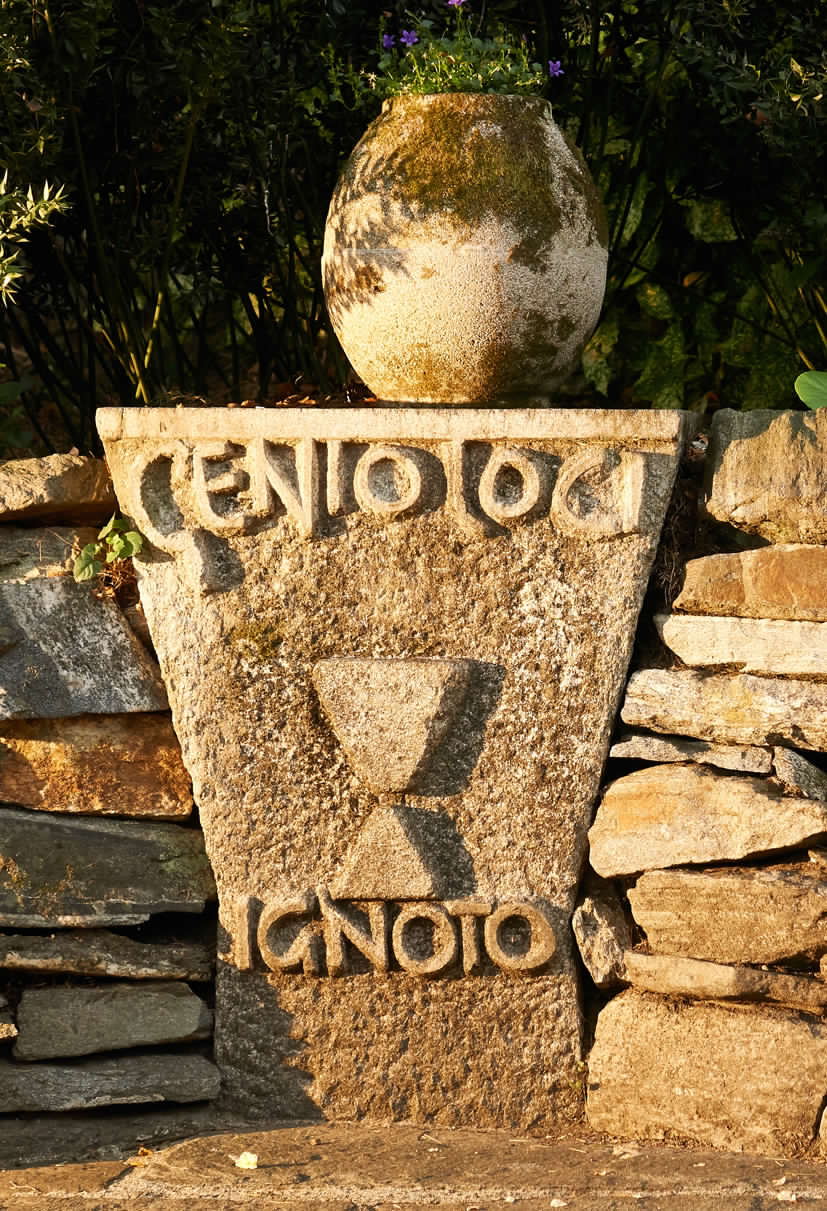
ITA ENG


Imagining Otherwise. The Elaboration of the Human World in Tools, Beauty, and Knowledge
EJL2023-09

Lecture: Imagining Otherwise. The Elaboration of the Human World in Tools, Beauty, and Knowledge
Lecturer: Romano Màdera (Università di Milano-Bicocca)
Date: Friday, December 15, 2023, h. 6:30pm
Place: Monte Verità (Ascona), Auditorium and Zoom: https://us02web.zoom.us/j/83456041549
Cycle: Eranos-Jung Lectures 2023 - The Great Worksites of Contemporaneity. Looks at the Knots of the Present
Language: Italian
Chairperson: Fabio Merlini (Eranos Foundation, Ascona; SFUVET, Lugano)
Discussion with the audience and aperitif to follow
The recording of the conference can be viewed on the official YouTube channel of the Eranos Foundation.
Lecture Presentation
Can we try to question the common origin of "culture" as a transformation of first nature into second nature, which becomes a condition of the very possibility of inhabiting a world for humans? The hypothesis I intend to argue is that the constant and systematic work and use of tools depend on the possibility of "imagining otherwise" the data present to normal perception and provide the basis for an initial organization of thought in space-time. Hence, the transformation of perception itself into the invention of techniques, usages and norms of coexistence, the creation through the arts of a "spiritual" world that is embodied and, by extension, knowledge itself about the human as a self-reflection of transformative potentials and possibilities. A process that finds its preconditions in the care of offspring extended and elaborated - to overcome the difficulties of neotenic processes typical of the human species - far beyond any other animal species. Care therefore and not the transformation of aggressive instincts - a decisive but secondary process - as the root of culture. From these processes we can infer that meaning, as the orientation of the cultural proceeding of the life of groups and individuals, is nevertheless and always present even in attempts to deny it and assert nonmeaning. Re-establishing and inventing new possibilities of meaning as an orientation -- thus helping the spontaneous ability to "imagine otherwise" -- is also at the root of all medical, psychological and spiritual ( or a combination thereof) soul-body care. The figure of Cicely Saunders, the founder of palliative care, the inspirer of ways of giving relief to "total pain," is emblematic as a symbolic exemplification, in the concrete of a biography, of this aptitude for transdisciplinary cooperation of techniques, arts, sciences and sciences of the human, and finally spiritualities in their various expressions.
Lecturer' Bio-bibliography
Romano Màdera is Full Professor of Moral Philosophy and Philosophical Practices at the Università degli Studi di Milano-Bicocca. He previously taught at the Università della Calabria and at the Università Ca’ Foscari in Venice. He is a member of the Associazione Italiana di Psicologia Analitica (AIPA), of the International Association for Analytical Psychology (IAAP), and of the Laboratorio Analitico delle Immagini (LAI), a professional association of sandplay analysts. He is on the editorial board of the "Rivista di Psicologia Analitica". He was among the founding members of the Open Seminars of Philosophical Practices and of Philo, a Post-Graduate School of Philosophical Practices. He defined his theoretical and clinical perspective as “philosophically oriented biographic analysis” and founded the Society for Philosophically Oriented Biographic Analysis (SABOF). His writings include Identità e feticismo (1977), Dio il mondo (1989), L’alchimia ribelle (1997), C.G. Jung. Biografia e teoria (1998), L’animale visionario (1999), La filosofia come stile di vita. Introduzione alle pratiche filosofiche (with L.V. Tarca, 2003), Il nudo piacere di vivere (2006), La carta del senso. Psicologia del profondo e vita filosofica (2012), Carl Gustav Jung. L'opera al rosso (2016), Sconfitta e utopia. Identità e feticismo attraverso Marx e Nietzsche (2018), Il caos del mondo e il caos degli affetti (con G. Cappelletty, 2020), Il metodo biografico. Come formazione, cura, filosofia (2022), and the most recent Lo splendore trascurato del mondo. Una mistica quotidiana (2022).
--
To mark the 90th anniversary of the Eranos Conferences (1933-2023), the Foundation wanted to question some leading figures in today's cultural world, asking them to present the projects and issues on which they are working. The idea is to bring into dialogue at a distance qualified gazes on the nodes of our present, to highlight their risks, opportunities, and prospects. Not, of course, to listen to the last word on what is happening today, but rather to enter their laboratories of thought and try to focus on a kind of ongoing geography of the present time: to orient ourselves, to find ourselves, to map out possible virtuous paths-despite the disorientation and uncertainty that characterizes us, in an age that is very rich in technological resources, but very poor in future perspectives. Rather than inviting them to reflect on a guiding theme, as is the Eranos-Jung Lectures usual practice, we wanted to offer the lecturers the chance to present to the audience the issues they are working on, to see how the gaze on an object is constructed, through what sensibility, what concerns, what desire for understanding, and what method. And, of course, what passion. It will be a journey that will allow us to visit some “great worksites of contemporaneity” dedicated to different thematic areas: i.e., the state of health of our democracies; the fate of the “book” object and interiority in the time of endless distraction and social media; the reality of the metaverse, the overcoming of the human, and the resources of mysticism; the sonic perceptive in a society that continually solicits the sense of hearing; the solitude of the artist in the glittering world of the commodification of creativity; the drifts of the divine; and the meaning of making culture. In essence: a journey outside and inside ourselves.